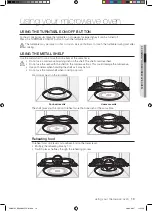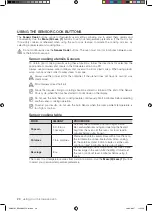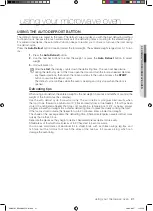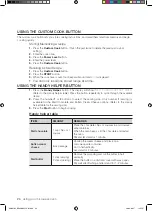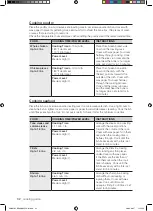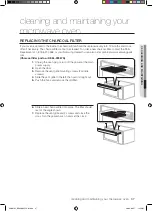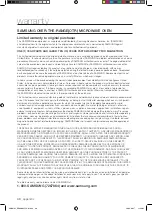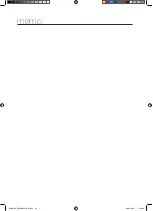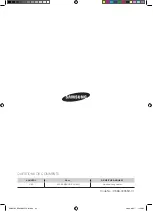
cookware guide
_29
03
C
OO
k
W
ARE GUIDE
cookware guide
To cook food in the microwave oven, the microwaves must be able to penetrate the
food without being reflected or absorbed by the dish.
It is important to choose the correct cookware, therefore look for cookware that is
marked microwave-safe.
The table below lists various types of cookware and indicates if and how they
should be used in a microwave oven.
mICROWAVE-SAFE UTENSILS
If you are not sure whether an item is microwave-safe or not, you can perform the following simple test:
1.
Fill 1 cup of a glass measuring cup –with water and put it inside your oven next to the item to test.
2.
Press the
one
button once to heat them both for one minute at high power.
After the minute, the water should be warm and the item you are testing should be cool. If the dish is warm,
then it is absorbing microwave energy and is not microwave-safe.
CookwAre
miCrowAve-sAFe
Comments
Aluminum foil
3 7
Can be used in small quantities to protect
areas against overcooking. Arcing can occur
if the foil is too close to the oven wall or if too
much foil is used.
Browning plate
3
Do not preheat for more than eight minutes.
Ceramic, porcelain, and
stoneware
3
Porcelain, pottery, glazed earthenware and
bone china are usually suitable, unless
decorated with a metal trim.
Disposable polyester
cardboard
3
Some frozen foods are packaged in these
materials.
Fast-food packaging
Polystyrene cups/containers
3
Can be used to warm food. Overheating may
cause the polystyrene to melt.
Paper bags or newspaper
7
May catch fire.
Recycled paper or metal
trims Glassware
7
May cause arcing.
Glassware
Oven-to-table ware
3
Can be used, unless decorated with a metal
trim.
Fine glassware
3
Can be used to warm foods or liquids.
Delicate glass may break or crack if heated
suddenly.
Glass jars
3
Regular glass is too thin to be used in a
microwave, and can shatter.
metal
Dishes, Utensils
7
May cause arcing or fire.
Freezer bag twist ties
7
Paper
SMH8165_DE68-00355C-01.indd 29
2009-08-27 11:35:57





